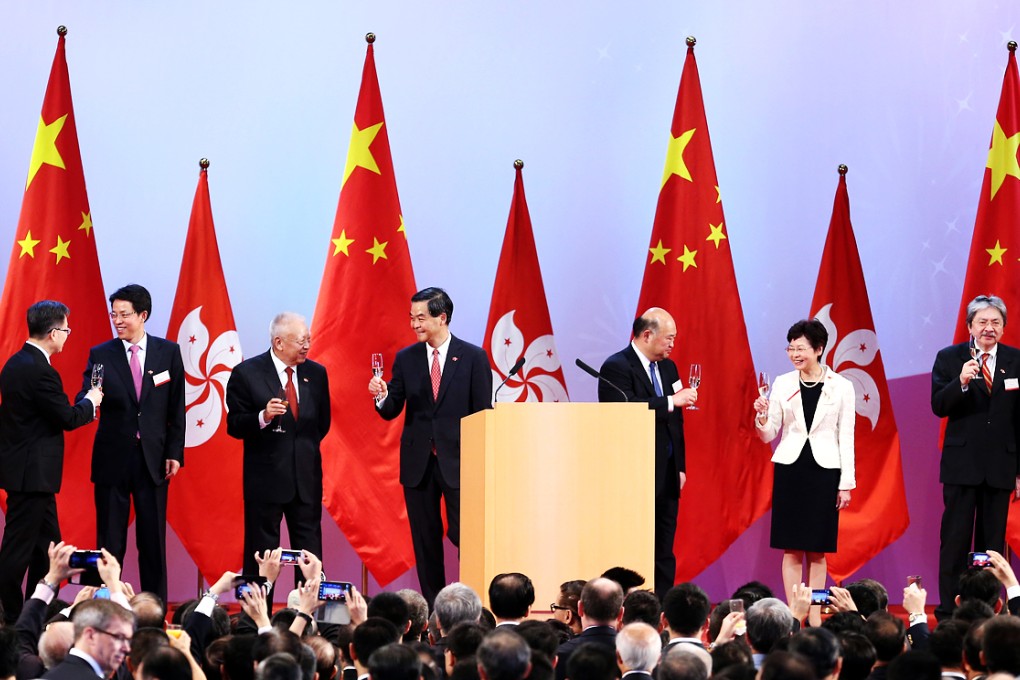Update | Demonstrators set CY Thursday deadline to resign with threat to step up protests
Protesters argue over best way to demonstrate at flag-raising ceremony attended by politicians from Hong Kong and the mainland

Student leaders of pro-democracy protests say that if Chief Executive Leung Chun-ying does not resign by Thursday they will step up their actions, including occupying several important government buildings.
Lester Shum said at a news conference this afternoon that the student leaders would welcome an opportunity to speak with a central government official, but not Leung, insisting he must step down. Shum is the vice secretary of the Federation of Students, which has played a key role in organising the street protests that started on Friday.
Leung raised a glass of champagne to toast National Day this morning – as thousands of protesters booed outside the traditional flag-raising ceremony and Occupy Central entered a fourth day.
As the main roads in the city’s commercial districts continue to be occupied by tens of thousands of Occupy Central supporters, key officials arrived at the Convention and Exhibition Centre in Wan Chai by ferry to attend National Day celebrations.

Protesters argued over the best way to make their presence felt at the ceremony before politicians from the city and the mainland clinked glasses to mark the 65th anniversary of Communist China.